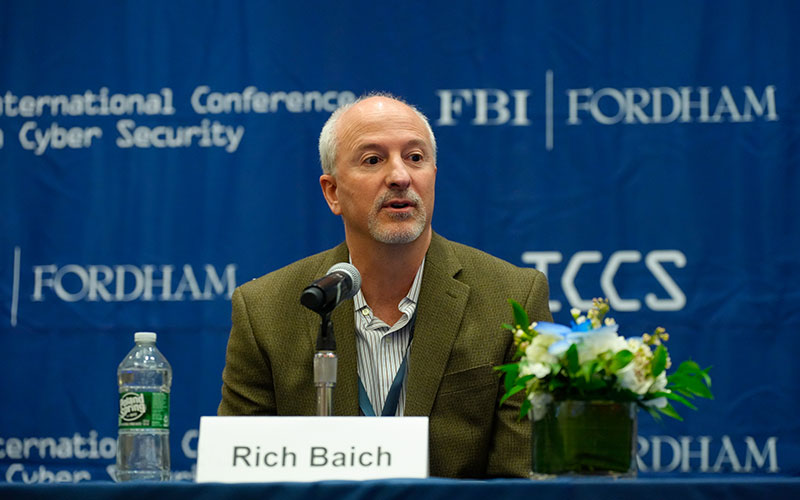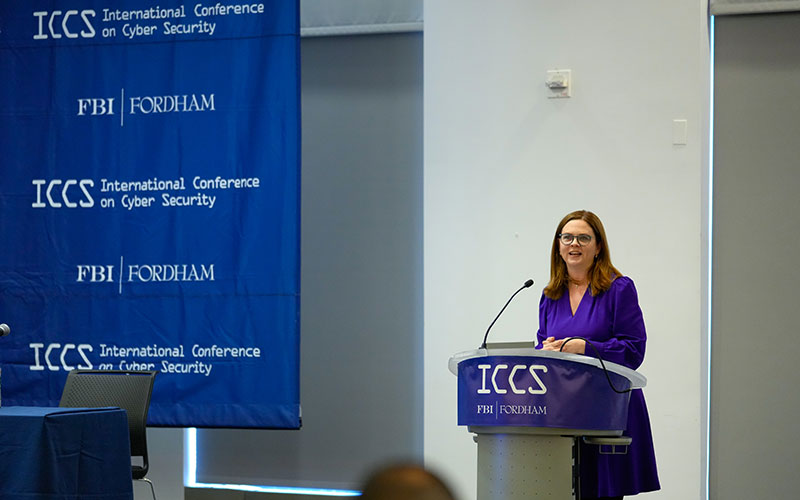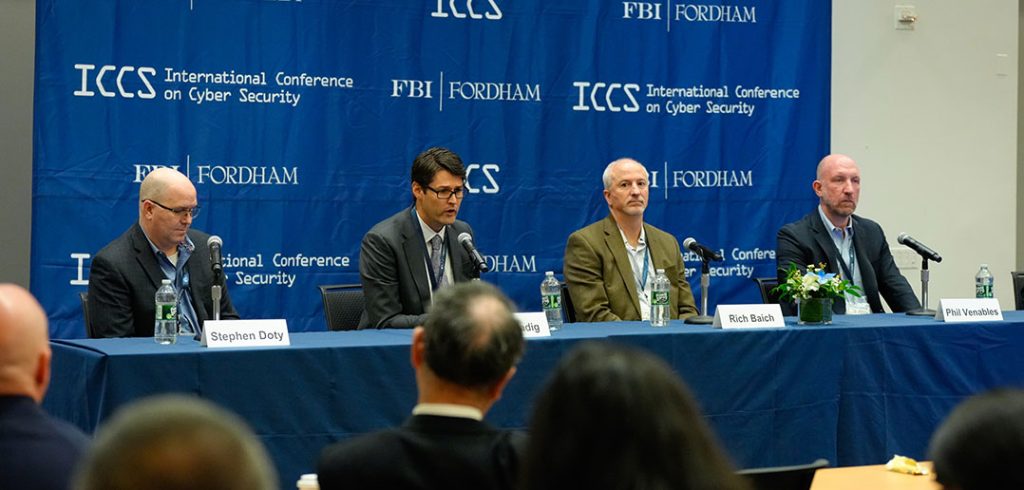Once the exclusive domain of Hollywood thrillers, cyber crime is now a regular part of daily life in an increasingly online world. As a result, cybersecurity specialists are needed now more than ever to help organizations protect sensitive data and systems from adversaries working to compromise them.
But according to top leaders in the field, there are not enough trained professionals to meet that need. There are currently about 3.5 million unfilled jobs in cybersecurity globally, including an estimated 750,000 in the United States.
“We still struggle with talent,” Rich Baich, chief information security officer for AT&T, said at the International Conference for Cyber Security (ICCS) held at Fordham’s Lincoln Center campus on Jan. 10. Baich spoke alongside chief information officers from organizations such as Yahoo and Google about the growing challenges of staying ahead of evolving threats.
“We need more cyber operators and cyber professionals with operational experience—where they’ve been into battle with an adversary,” Baich said. “They need that understanding, so that they know how to make those risk-based calls.”

In Fordham Classrooms, Real-World Scenarios
Thaier Hayajneh, Ph.D., the founding director of the Fordham Center for Cybersecurity (FCC) and one of the conference organizers, emphasized that hands-on experience is especially crucial in cybersecurity roles because simple missteps can lead to disastrous consequences.
“Secrets, passwords, social security numbers, medical records—you name it. All this private information could be exposed if someone misses just one command…or forgets to close one loop,” he said. “Experts are hard to find, so we [at FCC] are filling that gap.”
The center’s offerings include three master’s degree programs, an advanced certificate, and an undergraduate minor. All of them aim to prepare students through what Hayajneh calls a “competency-based model,” emphasizing equal parts theory and practical experience.
For example, students participate in cyber competitions such as digital “capture the flag” simulations, where they are tasked with stepping into the shoes of hackers to learn their methods from the inside out.
“These are very important components of cybersecurity. We expose the students to real-world scenarios,” Hayajneh said.
The growing need for positions requiring this type of training and experience means there’s no shortage of options for students entering the market.
“All of our graduates secure jobs because there is a big demand for cyber, but also for the quality of students we produce,” Hayajneh said.
Critical Partnerships
Designated in 2017 as a Center for Excellence in Cyber Security by the NSA and Department of Homeland Security, Fordham maintains strong partnerships with top corporations, as well as federal agencies who provide funding and support for students going into government work.
“We have probably been a funnel of graduates to the bureau for law enforcement for a very long time,” said Fordham President Tania Tetlow in her opening remarks at ICCS. “We teach our students to think really hard about justice and what it means to protect people.”

ICCS, held at Fordham since 2009, serves as a regular meeting point for exchanging knowledge and insights between government and private sectors. For Hayajneh, looping in academic institutions like Fordham is crucial for driving innovation and combating global threats.
“I think it’s key, we need the three elements together,” Hayajneh said. “They must support academic progress because we are the suppliers of future talent and manpower. They have to work in synchronization.”

